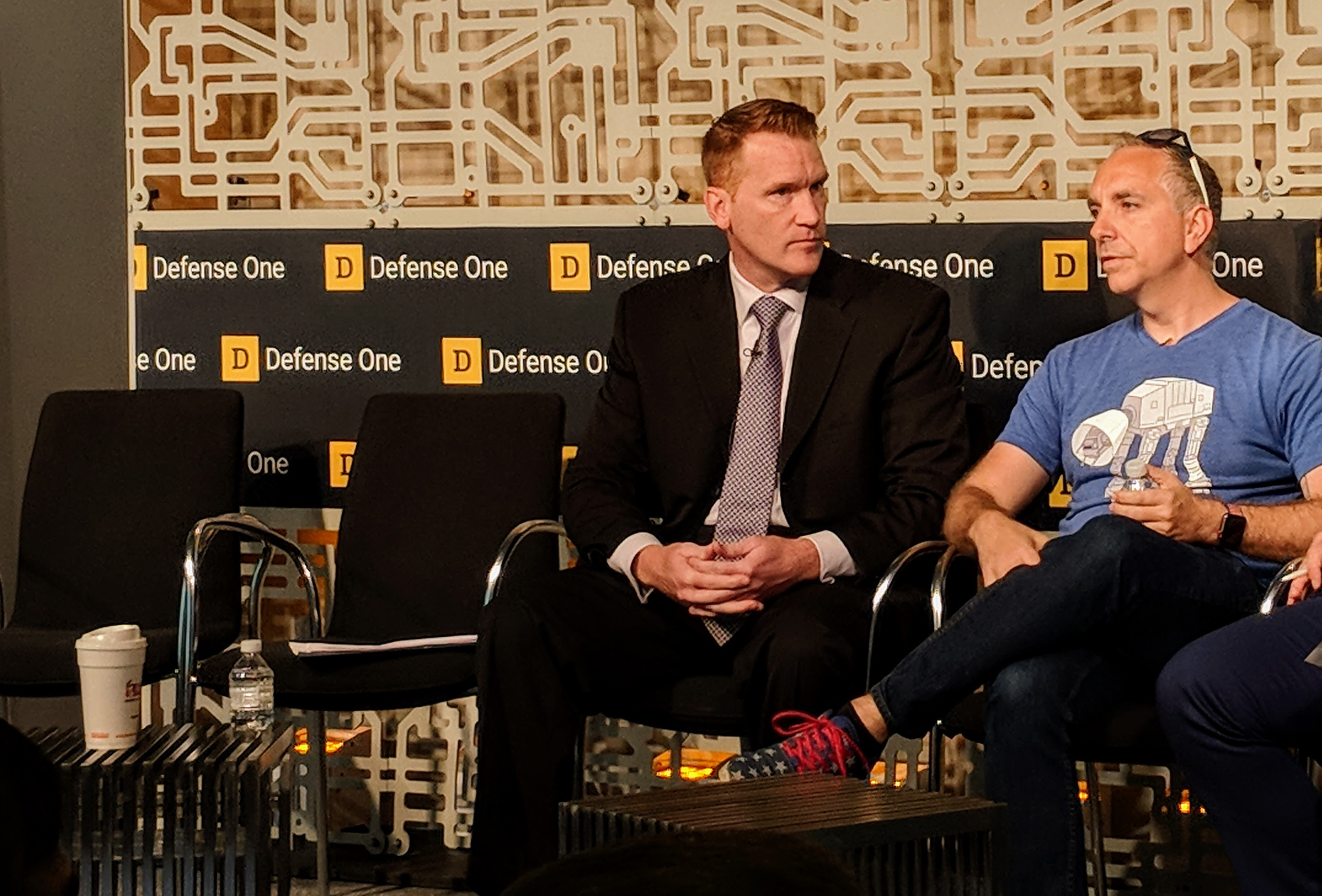.jpg)
Richard Joseph (left), USAF's chief scientist, and Mark Tapper, the service's Special Advisor to the Deputy Chief of Staff for ISR, speak at Defense One's annual Tech Summit, June 26, 2018. Staff photo by Gideon Grudo.
If DOD fails to deliver the innovation it keeps promising for its products and processes, Congress will “lose confidence” in it, the Air Force’s chief scientist Richard Joseph said Tuesday.
When that happens, priority on innovation will drop. “And you know what happens next,” he concluded ominously.
Innovation and the culture surrounding it were front and center in the morning segment of Defense One’s annual Tech Summit in Washington, D.C. Joseph spoke during a USAF 2030 panel alongside Mark Tapper, USAF’s Special Advisor to the Deputy Chief of Staff for Intelligence, Surveillance, and Reconnaissance.
DOD needs “new approaches” to technologies, not just “new technologies,” Joseph said. Like others in recent days and months, Joseph pointed across the ocean to explain why the need is dire. China and Russia have “access to tech” allowing them to become “significant opponents,” he said.
“We should not be just following their lead,” he said?. “We should decide where we need to go to retain some type of dominance.”
When every development or innovation is dealt and handled as a project that must become a major “$30 billion acquisition,” Joseph argued the actors judging that project are likely to call it a complete failure after a single step misfires. Instead, failures should be more like rungs on a ladder, used to ascend higher with increased knowledge from the failure.
In contrast, the notion is that “we know everything we needed to know” when it comes to getting to work on a large defense innovation project, Joseph said. If something malfunctions after the process begins, it means “the whole thing is flawed.” The Pentagon needs “to stop that.”
Joseph was echoed by the director of the Defense Digital Service—a Pentagon tech outfit running anything from white hat hacking programs to a major overhaul of air operations centers systems.
 Chris Lynch (right), director of Defense Digital Service, and Edward Brindley, Principal Director for Cybersecurity, Office of the CIO, DOD, speak June 26, 2018 at DefenseOne’s Tech Summit. Photo: Gideon Grudo.
Chris Lynch (right), director of Defense Digital Service, and Edward Brindley, Principal Director for Cybersecurity, Office of the CIO, DOD, speak June 26, 2018 at DefenseOne’s Tech Summit. Photo: Gideon Grudo.
“We’re interested in understanding what the challenges are across the department,” DDS founder and director Chris Lynch said at the summit. Tech is really a set of tools to enable conflict resolution, he added. “Let’s identify problems,” and then find a way to solve them.
Sometimes, a servicemember isn’t struggling with the need for artificial intelligence or machine learning, Lynch said—“you’re struggling with Excel.”
The ability to cut red tape is one of the things Lynch said he values in new employees at DDS.
“Our adversaries are not in all instances hindered by bureaucracy,” he said. There was another trait he said proves pivotal.
The call to innovate the very culture of innovation is nothing new for the Pentagon. During February’s Air Warfare Symposium, for example, the boss of Air Education and Training Command said USAF fails to teach airmen to fail, CMSAF Kaleth Wright called on USAF leaders to help him help airmen fear failure less, and a Google executive derided DOD for taking more risks in tech cybersecurity than any company ever would.